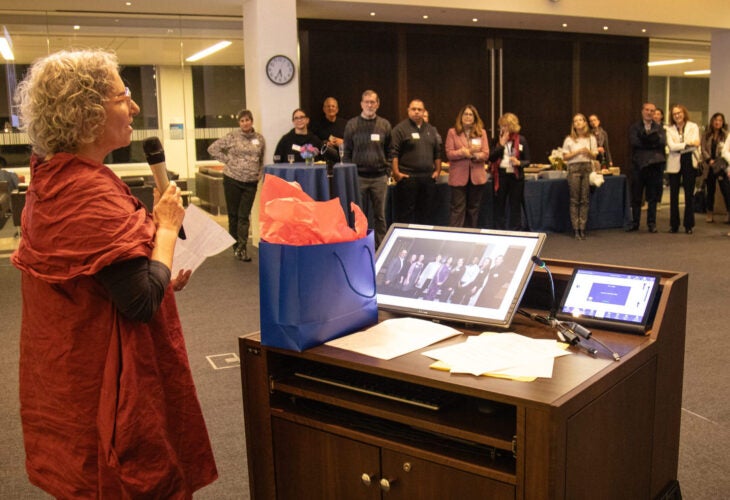Developing Penn’s Leadership and Teaching Excellence
As the Director for the new Online Learning Initiative (OLI), Rebecca Stein became a leader in that transformation. “I am so grateful that Beth Winkelstein, now Deputy Provost, believed that I could contribute to bringing Penn online and gave me this opportunity.”
“When we hired Rebecca Stein in 2016,” Winkelstein says, “there was an energy and excitement as then-Provost Vince Price saw the future in online education, but there was also a bit of caution as we navigated the full extent of how this could or should play out for Penn. What we did know for sure was that we wanted an innovative, entrepreneurial leader to lead what was then the Online Learning Initiative (and has since become CETLI). And, I wanted to make sure we had someone leading that unit that really understood what it meant to offer top-of-the-line courses and what is needed to be a great instructor. Maybe we were looking for a unicorn – but we definitely found the right leader in Rebecca Stein. She has led OLI and CETLI with an energy, adaptability, innovative spirit, and service approach and Penn is better for it.”
The transition from the classroom to management was exciting and humbling for Stein. While running large lecture courses gave her a certain ease in presentations, and she had experience managing large teaching teams, she was eager to learn about how to be an impactful manager. Megan Carr, now the Senior Director of Digital Learning Strategies at CETLI, credits Stein with building Penn’s online learning leaders through “her focus on mentorship and doing her part to cultivate the incredible community of Penn.” Carr says Stein’s leadership style was invaluable for her own growth as a leader: “Since 2017, Rebecca has continuously supported me, but also challenged me when I needed it. She pushed me to become a better leader.”
Jessica Morris, who worked with Stein at OLI and is now the Director of Instructional Design & Technology at CETLI, recalls that Stein came to the role with a “clear, strategic sense of what would scale online learning at Penn.” In particular, Stein developed a toolkit approach, which provided resources to help those interested in creating or growing online programs. “This toolkit approach,” Morris says, “has continued to create a useful structure for organizing our support of Digital Initiatives at CELTI and has enabled us to evolve our resources as the needs at Penn have changed.”
When Stein started in the role in 2017, there were two online degrees. As of this year, there are 18 online degrees, and 1 out of every 10 students at Penn is enrolled in a fully online degree program. Carr says Stein’s impact has been both philosophical and strategic: “Rebecca has changed how we think about online learning at Penn, and in the process has helped central offices and Schools to prepare and adapt to this growing population of students who now make up 10% of Penn’s student population.”
“What really is the most thrilling for me at Penn is that online isn't the othered,” Stein says. “We don't have an online school. We don't have a world campus. It's the same faculty, the same governance. Some students come to campus and some students go to the computer.”


